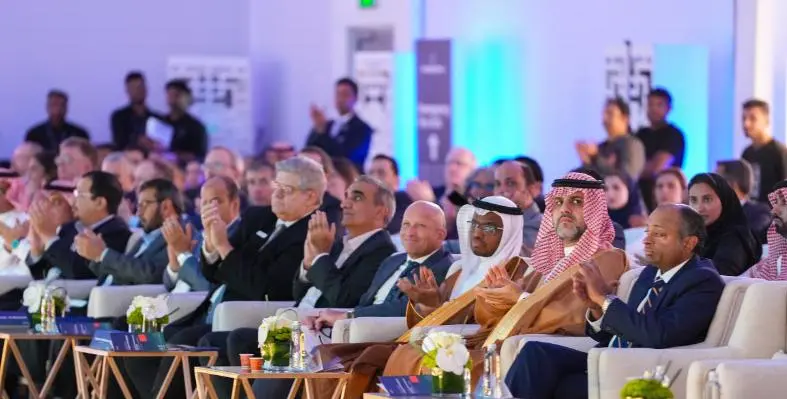Emerson has inaugurated a new manufacturing and innovation hub at King Salman Energy Park (SPARK) as part of its expansion in the Middle East
The 140,000-square-foot facility consolidates automation technologies such as control systems, valves, and industrial lighting under one roof.
"This new facility reinforces Emerson’s position as a key player in the industrial sector in the Kingdom and contributes to Saudi Arabia’s long-term Vision 2030 of strengthening local talent, boosting supply chain localisation and advancing sustainable growth," said Mathias Schinzel, president of Emerson Middle East and Africa.
As part of its net-zero emission goals, the facility incorporates energy-efficient technologies, including rooftop solar power, compressed air optimisation, and lighting system optimisation.
Mishal I. AlZughaibi, SPARK president and CEO, added, “We are proud to collaborate with Emerson to support their new cutting-edge manufacturing hub at SPARK. With the establishment of these facilities, we are closer than ever to achieving our localisation goals. Having Emerson on board strengthens our vision, and we are confident that together, we will continue to advance Saudi Arabia’s industrial journey.”
Emerson has been expanding its presence in Saudi Arabia, having first opened a valves manufacturing facility in Jubail in 2011, followed by additional sites in Dammam and Dhahran Techno Valley.
The new hub at SPARK was officially inaugurated by Emerson’s leadership team, including president and CEO Lal Karsanbhai, alongside key figures from the Ministry of Energy, MISA, SABIC, SWCC, and Ma'aden.
"As part of Emerson's contribution to the 'Made in KSA' initiative, Emerson’s facility will serve domestic and regional markets with advanced technologies designed to meet the evolving needs of various industries, further solidifying Saudi Arabia's position as a leader in localised manufacturing and innovation," said Hussein Zein, vice-president of Emerson in Saudi Arabia and Bahrain.
The facility aims to reduce reliance on imported goods and strengthen local supply chains, aligning with Saudi Vision 2030’s goals of building self-sufficient industries to support the country’s economic growth.







